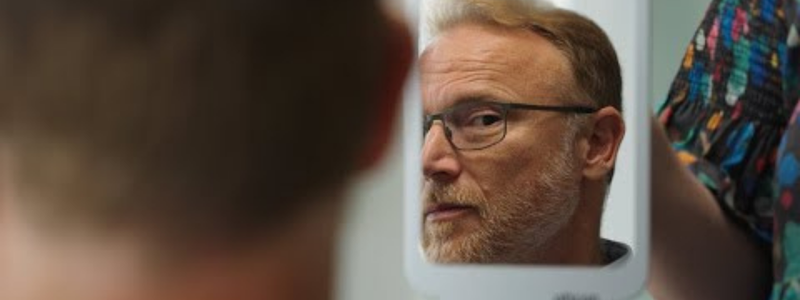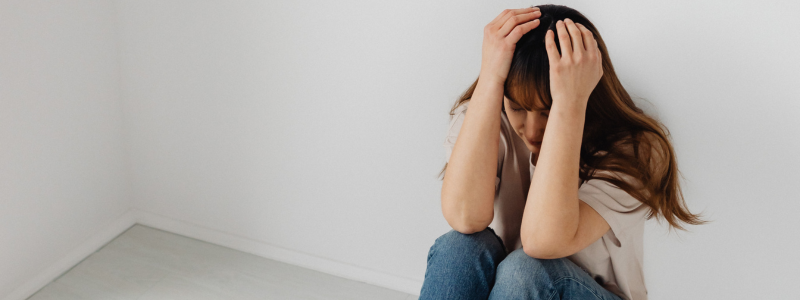
Head of Online Medical Content

Audiology Expert

What is Otosclerosis?
How can this middle ear condition cause hearing loss?
Overview | What is otosclerosis? | Who gets otosclerosis? | Can you prevent otosclerosis? loss | Symptoms | Treatments
Last Hearing Aid UK Update:
Otosclerosis overview
Otosclerosis is a condition where abnormal bone growth in the middle ear impairs hearing. This growth typically affects the stapes bone, damaging its ability to transmit sound vibrations to the inner ear. It often leads to progressive hearing loss and can be treated with hearing aids or surgery.
In this article, we talk about understanding its pathophysiology, risk factors, and available treatments crucial for effective management and improved quality of life.
Otosclerosis and hearing loss
Otosclerosis is an ear condition within the middle ear caused by abnormal bone growth. It results in hearing loss, commonly progressive, as the growth stops the small bone (known as the stapes) from vibrating. This vibration allows us to hear.
When the name of this ear condition is broken down, “oto” means ear, and “sclerosis” means hardening. Therefore, Otosclerosis means hardening of the ear. This condition simply hinders sound transmission, leading to symptoms like hearing loss, tinnitus, dizziness, or a combination.
What is otosclerosis?
Otosclerosis is a condition that affects the small middle ear bone. Usually, sound waves are converted into mechanical energy first inside the ear and then converted to electrical energy. During this process, the three small bones (ossicles) within your ear – the malleus, incus, and stapes – vibrate.
These tiny bones need to be able to move freely for you to hear properly. When you have otosclerosis, the smallest of these, the stapes, hardens to the surrounding environment and cannot vibrate. It’s similar to a roadblock; the energy just stops at that moment and is unable to make the journey to the inner ear, causing loss of hearing.
Otosclerosis is a type of conductive hearing loss
As the ear loses this ability to transmit sound, people often complain of low-frequency hearing loss first. This means that you may struggle with all those low-pitched sounds, such as car engines and male voices.
Although otosclerosis is a form of conductive hearing loss, it is uncommonly discovered in patients who develop hearing loss, and quite difficult to know why the condition is contracted. Therefore, it is a condition that is generally delayed, as in reality, most conductive hearing loss causes are middle ear fluid problems, perforated eardrum, and excessive earwax.
This is also why most people visit their GP, audiologist, or ENT department multiple times to receive a correct diagnosis, as often this condition can be misdiagnosed.
Who gets otosclerosis?
However, there are a few known risks linked to otosclerosis, which are pregnancy, genetics, race, gender, and age, particularly white women and young adults.
While a familial link is often associated with otosclerosis, it's not exclusive, as some individuals develop it without a family history. Typically emerging in people's late 20s or 30s, it can affect younger people too.
Otosclerosis is usually more prevalent in women, especially during pregnancy or menopause, as the condition's exacerbation may be linked to heightened oestrogen levels. Concerned individuals should consult their doctor, who may recommend hearing tests to monitor any potential issues.
Can you prevent otosclerosis?
There are no known preventions, like other causes of hearing loss, such as noise-induced hearing loss, due to exposure to loud sounds, that you can implement steps to reduce the risks. There is also a lot more access to resources on the prevention and risk management of other hearing loss.
Top symptoms of otosclerosis
Some of the common symptoms of otosclerosis include:
Gradual hearing loss: A primary symptom of otosclerosis is a progressive hearing loss that develops over time, which can affect one or both ears.
Tinnitus: Some individuals with otosclerosis might experience ringing, buzzing, or other similar noises in their ears, also known as tinnitus.
Dizziness or balance issues: Although less common, otosclerosis may bring dizziness or other balance issues.
Difficulty hearing low frequencies and noisy environments: People with otosclerosis may have particular difficulty hearing low-frequency sounds. This means it can be hard to comprehend deeper voices or low-pitched sounds.
Those with otosclerosis often find it challenging to distinguish and understand sounds in noisy environments. This ultimately leads to difficulty understanding conversations in crowded places such as coffee shops and live events.
Ear pressure or sensation of fullness in the ear: Some individuals may experience a sensation of pressure and/or fullness in the ear/ears. This can even present itself without an apparent blockage.
Ear infections: While not a direct symptom of otosclerosis, some individuals with this condition might be more at risk of ear infections due to the changes in the middle ear.
Common treatments for otosclerosis
Treatment options for otosclerosis sufferers can include:
Hearing aids: In the early stages when hearing loss is mild, hearing aids can help improve and support hearing by amplifying sounds. They are often the first line of treatment for those with otosclerosis.
Sodium fluoride: This medication may help slow down the progression of otosclerosis in some cases. It works by inhibiting bone resorption and promoting new bone growth. However, its effectiveness can vary from person to person.
Surgery: Stapedectomy or stapedotomy is a surgical procedure often recommended for severe cases of otosclerosis. During these procedures, the surgeon bypasses the abnormal bone and replaces the stapes bone with a prosthetic device.
These surgeries can often restore hearing to a significant degree. However, they do carry some risks, such as hearing loss, tinnitus, and dizziness, and are generally considered for cases where hearing loss is significant and other treatment options have been ineffective.
Hearing rehabilitation therapy: For individuals who have undergone surgery or are using hearing aids, hearing rehabilitation therapy can be beneficial. This therapy helps individuals adjust to their improved or changed hearing abilities and learn strategies to communicate effectively.
Regular monitoring: Regular check-ups with an audiologist or an ear, nose, and throat (ENT) specialist are essential for monitoring the progression of otosclerosis and adjusting treatment as needed.
Seeking medical help with otosclerosis and the dangers of not
As mentioned earlier, otosclerosis is progressive, and if left untreated, it can worsen over time, limiting your ability to hear the sounds around you and reducing your quality of life. Therefore, ignoring the signs is not the best strategy for your future hearing health. If you are recognising some of the symptoms of otosclerosis, contact your GP for a diagnosis.
If you are diagnosed with otosclerosis, your GP will be able to guide you through the next steps. This is often a referral to your local ENT department or audiologist, who will determine the best treatment for your level of hearing loss. With various treatment options available, doing nothing is not one.
Why Choose Us?
- FREE Hearing Tests
- Best Hearing Aids and Prices
- FREE Aftercare for Life
- FREE Home Visits
- 200+ Local Audiologists
- 60 Day Money Back Guarantee
If you think you have hearing loss, it's important that you don't do nothing
As with most health conditions, ignoring the symptoms is not the way forward, as conditions such as otosclerosis will progress over time.
If you have symptoms such as hearing loss, dizziness, and/or tinnitus - you must see your local GP to be diagnosed. If you do have otosclerosis, your GP will then advise you on the next best steps.
For instance, you may be referred to see an audiologist or ENT doctor to treat your hearing loss, if present.
Other hearing loss awareness articles you might like...
 Hearing aid stigma
Hearing aid stigma  The impact of diet on your hearing
The impact of diet on your hearing  How to tell if hearing loss is permanent or temporary
How to tell if hearing loss is permanent or temporary Our specialist service includes:
Do not spend hundreds of pounds without getting a second opinion from us.
Please call us on 0800 567 7621
 Not only are the prices great, but the service is fantastic! Many thanks to your team.
Not only are the prices great, but the service is fantastic! Many thanks to your team.What's included in our hearing aid prices?
Other pages you might find useful
Ask the Experts
6 Morton Lane
Walkwood
Redditch
Worcestershire
B97 5QA
Latest Launch
When we refer to a product as 'Latest Launch', we mean it is the latest to be released on the market.
New
When we refer to a product as 'New', we mean that the product is the newest hearing aid model on the market.
When we refer to a product as 'Superseded', we mean that there is a newer range available which replaces and improves on this product.
Older Model
When we refer to a product as an 'Older Model', we mean that it is has been superseded by at least two more recent hearing aid ranges.
